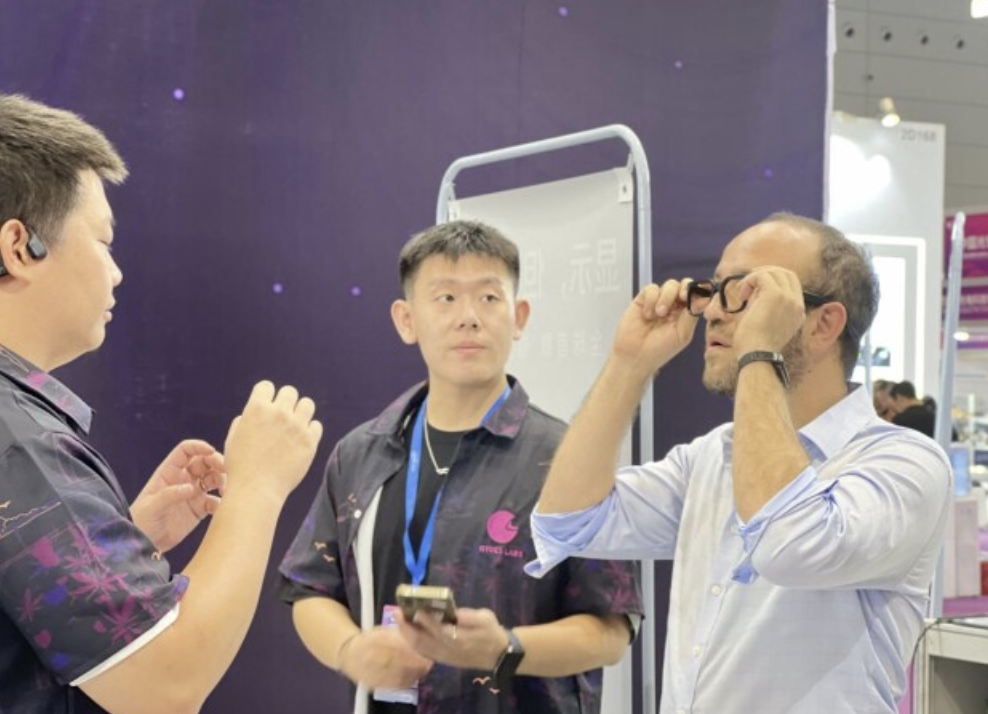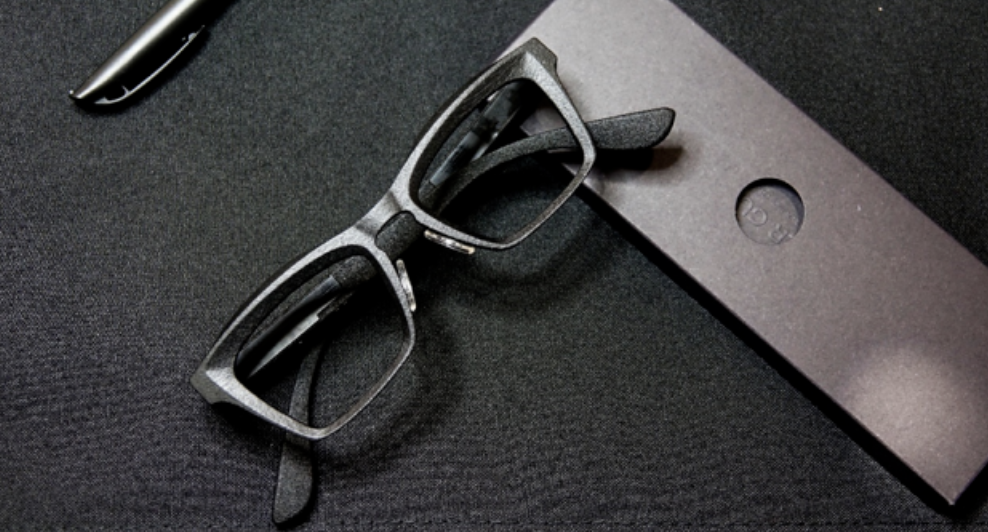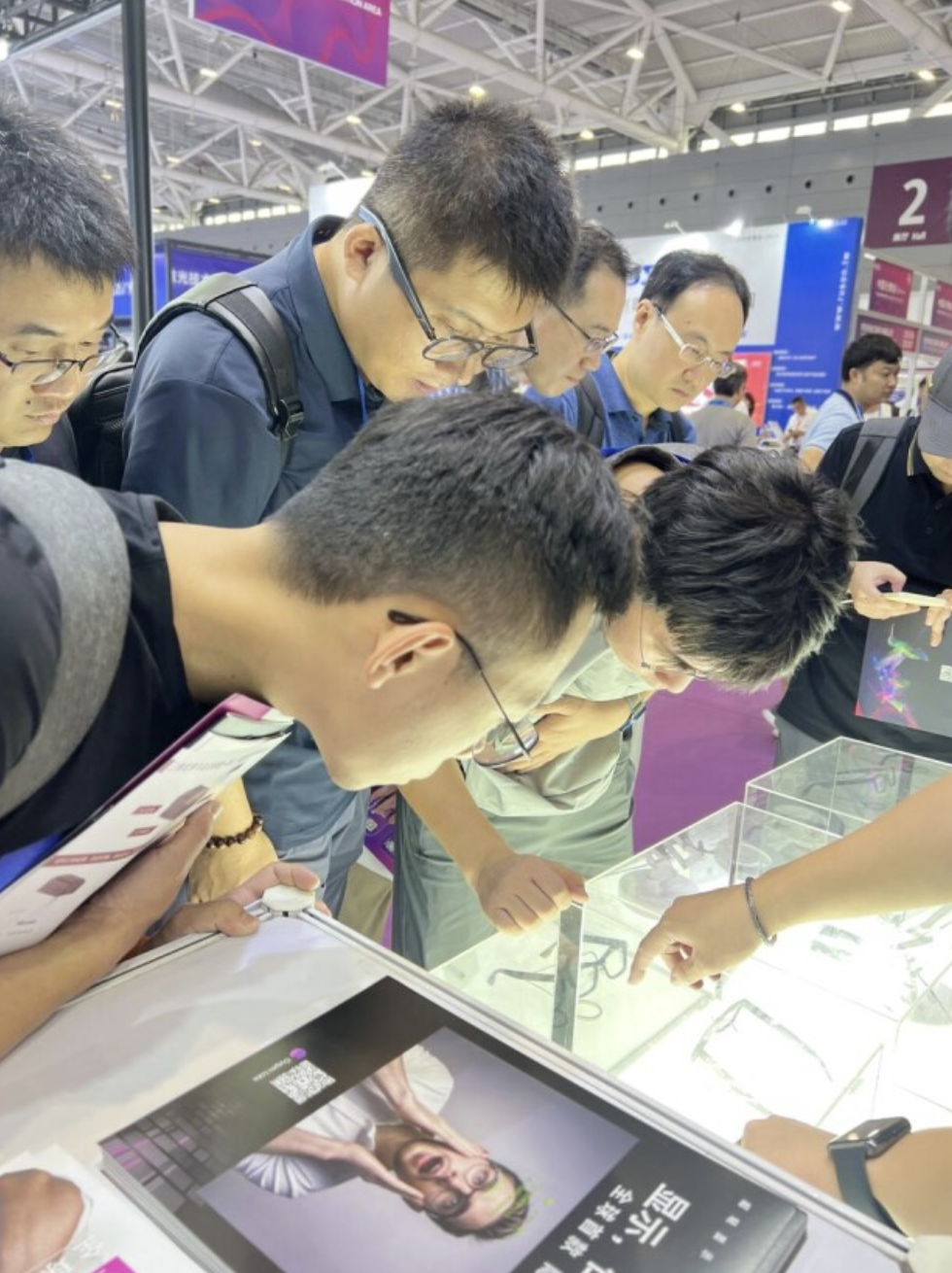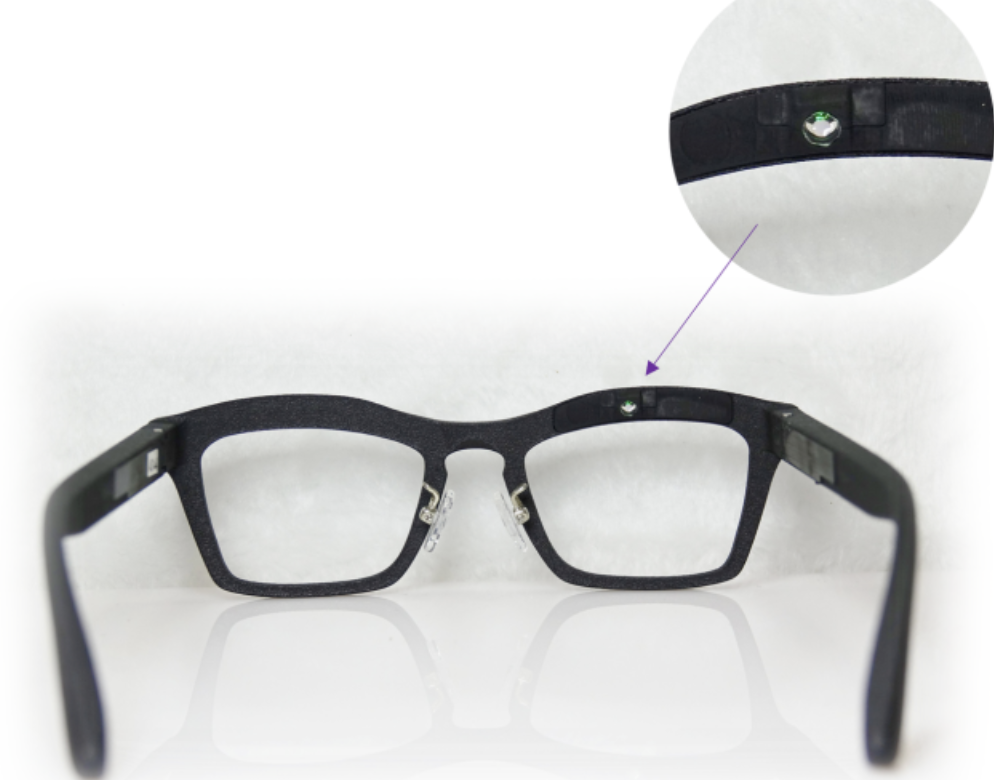Gyges Labs leads industry transformation, as the world's first invisible display AI glasses debut at CIOE
![]() 09/18 2024
09/18 2024
![]() 474
474
From September 11th to 13th, the 25th China International Optoelectronics Expo (CIOE), a top event in the global optoelectronics industry, was successfully held at the Shenzhen World Exhibition & Convention Center.
As a star exhibitor in the new display technology exhibition, Gyges Labs, together with its partners, launched the world's first invisible display AI glasses and its solutions, attracting the attention of many optical technology researchers and eyewear industry practitioners. The launch of this product not only represents a technological breakthrough in the field of near-eye display but also marks the entry of smart glasses and personal AI terminal devices into the era of invisible display.

According to the latest market research report from International Data Corporation (IDC), the smart glasses market is expected to grow at a compound annual growth rate of over 30% over the next five years. This has attracted tech giants like Meta, Apple, Microsoft, Google, as well as domestic companies like Huawei, ByteDance, Xiaomi, and Oppo to accelerate their layouts in the smart glasses sector. Among them, the Ray-Ban Meta smart glasses, a collaboration between Meta and Ray-Ban, have become a phenomenon in the market, selling over a million units since their launch, thanks to their integration of Meta's Llama 3 large language model.
However, before the launch of Gyges Labs' invisible display glasses, there was no daily-wear smart glasses with display functionality that could be worn all day in the global market. The reason is that existing optical solutions for smart glasses differ significantly from regular glasses in appearance and functionality, making it difficult for them to seamlessly integrate into daily life and work scenarios. This incompatibility in appearance has become a key bottleneck for the further popularization of smart glasses.
To address this market pain point, Gyges Labs collaborated with partners to launch a revolutionary invisible display AI glasses product. This product is currently the world's lightest AI carrier, perfectly embodying the unique product characteristic of "displaying without revealing." With these glasses, users can interact intelligently with the digital world without being noticed by others, making smart glasses not only suitable for all-day wear but also seamlessly integrated into various daily scenarios, achieving truly invisible display. This not only signifies the transition of AI glasses from science fiction to reality but also sets a new "invisible" standard for the smart glasses industry.

Behind the product characteristic of "displaying without revealing" lies Gyges Labs' self-developed DigiWindow technology, which is also one of the world's smallest near-eye display optical solutions. Its display module can be as small as 2x2x2 millimeters, allowing for easy integration into regular eyeglass frames without adding significant extra weight or bulk. Additionally, with its superior optical efficiency, the technology supports up to a week of battery life, effectively addressing battery anxiety.
It is worth mentioning that the invisible display function is achieved through a unique optical design, ensuring that the displayed content is visible only to the wearer and undetectable to others. Even during face-to-face conversations, no display traces are visible. Moreover, DigiWindow technology is not limited by lens types and can be seamlessly integrated into plain glasses, myopia glasses, presbyopia glasses, and even fashionable eyewear, demonstrating strong versatility. Whether elderly users, young fashion enthusiasts, or myopia patients, they can all enjoy the comfort of all-day wear through its ultra-lightweight design.

Compared to the currently immature optical waveguide technology in the market, DigiWindow technology demonstrates significant unique advantages. Optical waveguide solutions still face numerous technical bottlenecks in assembly, diffraction, weight, size, light leakage, and cost, especially the heavy weight, making it difficult to achieve long-term comfortable wear. Gyges Labs' invisible display glasses perfectly address these issues, providing users with a more lightweight, comfortable, and convenient wearing experience, truly realizing the ideal of all-day smart glasses.

With unique features such as "ultra-light display, lens-agnostic, and invisible appearance," invisible display glasses have opened up new application scenarios for glasses as AI carriers. Whether at work, social gatherings, or in daily life, users can easily access the information they need without worrying about distractions from the outside world. Gyges Labs' invisible display glasses not only feature core functions such as voice interaction, real-time translation, and information display but also provide users with comprehensive smart services, becoming their "second brain."
'This is not just a technological breakthrough but also an innovation in future lifestyles,' emphasized Deng Xudong, Co-founder and COO, at the event. 'Our goal is to make AI glasses no longer exclusive to tech enthusiasts but rather an integral part of everyone's life, much like smartphones. Gyges Labs will continue to drive close collaboration with partners to make AI glasses more accessible, realizing the vision of 'making everyone a superhero.'"
About Gyges Labs
Gyges Labs is dedicated to creating universally accessible smart wearable devices for the AI era using unique advanced optical and collaborative AI technologies. Building on the team's micro-nano optics expertise, Gyges Labs has developed the DigiWindow technology based on the principle of retinal projection, realizing the world's smallest and lightest near-eye display optical module. Compared to optical solutions like Birdbath and optical waveguides, this technology significantly reduces the size to the millimeter level while reducing power consumption and achieving complete optical compatibility for both near and far vision. Additionally, leveraging the team's expertise in collaborative AI, the Mirron AI engine, tailored for wearable devices, elevates the perception and interaction capabilities of future wearables to a new level, laying a solid foundation for realizing the "second brain" concept.








